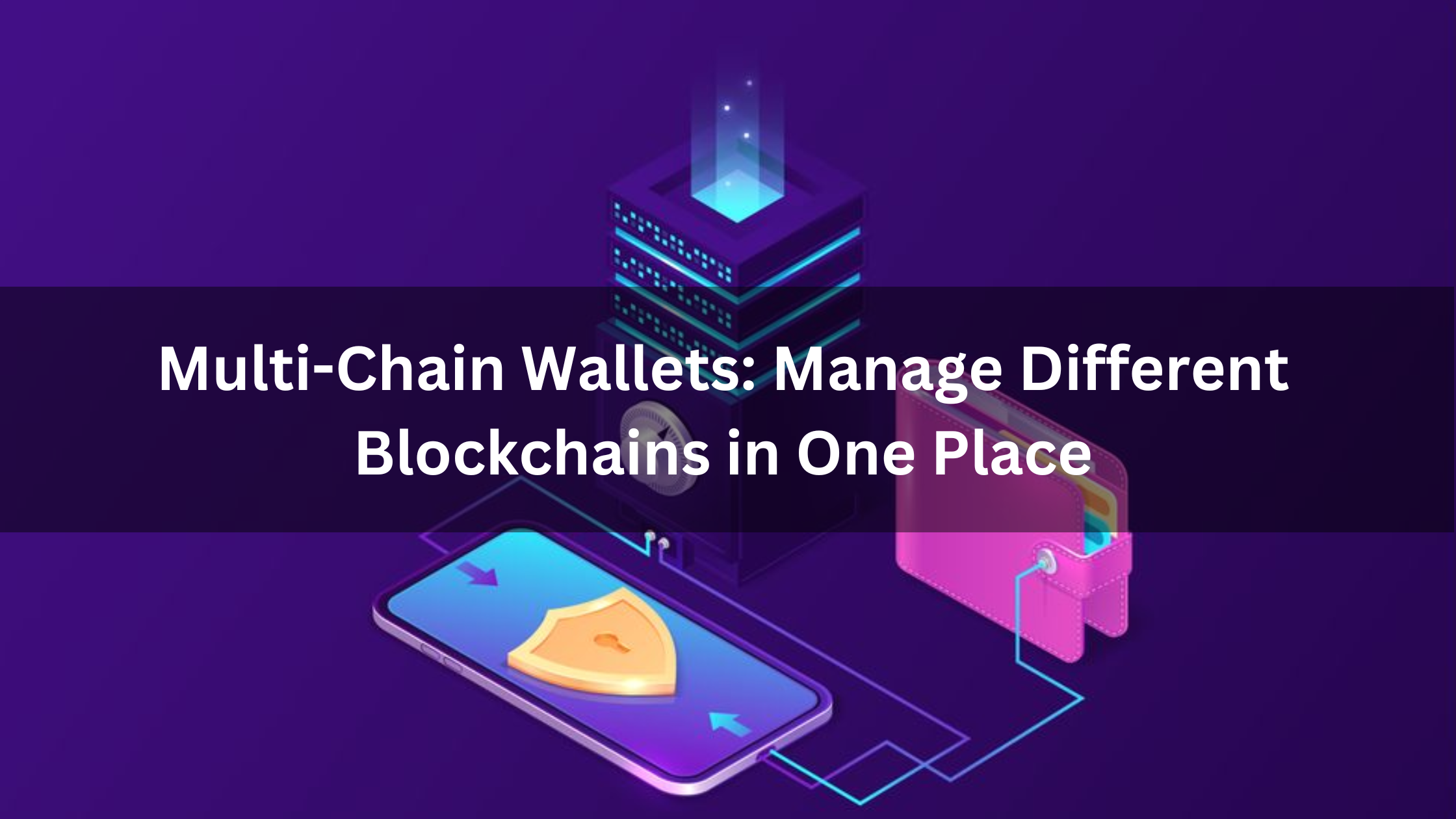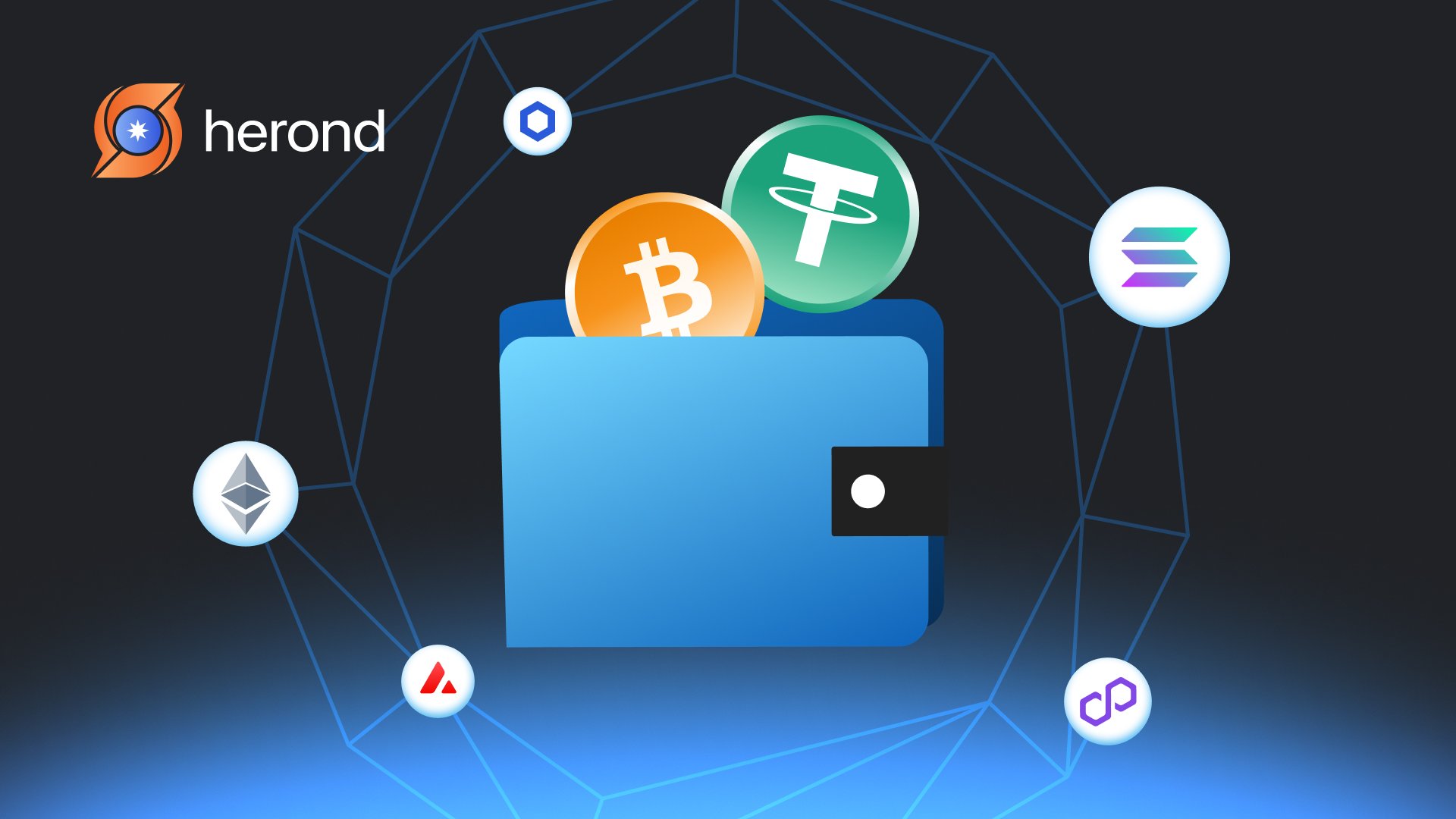As blockchain technology continues to grow, the demand for efficient tools to manage cryptocurrencies across multiple networks has never been greater. A multi-chain wallet offers a seamless solution, empowering users to interact with multiple blockchains effortlessly in one convenient platform. With the growing adoption of cryptocurrencies and decentralized applications (dApps), managing assets on various chains can be a daunting task. Multi-chain wallets solve this challenge by providing a unified platform, streamlining the user experience while enhancing accessibility and efficiency. This article aims to introduce the general understanding of the Multi-Chain Wallet and their pros & cons.

What is a Multi-Chain Wallet?
A multi-chain wallet is a digital wallet. In more detail, it allows users to manage cryptocurrencies and tokens across multiple blockchain networks within a single platform. Unlike traditional wallets designed for one specific blockchain, these wallets support a wide range of blockchains, enabling seamless access to diverse crypto ecosystems without needing separate wallets for each network.
Key Features of Multi-Chain Wallets

- Cross-Chain Compatibility: Multi-chain wallets support multiple blockchains, such as Bitcoin, Ethereum, Binance Smart Chain, Solana, Avalanche, and more. This compatibility lets users store, send, and receive assets from different networks without switching between platforms.
- Unified User Interface: These wallets offer a centralized dashboard where users can view and manage their assets across various chains. This simplifies tracking balances, transactions, and portfolio performance.
- Interoperability for DeFi and NFTs: Multi-chain wallets are not limited to cryptocurrency storage; they also enable users to interact with decentralized finance (DeFi) protocols and manage NFTs (non-fungible tokens) from different chains in one place.
- Security and Backup Options: Security remains a top priority, with many multi-chain wallets offering hardware wallet support, private key encryption, and mnemonic phrase backups to ensure the safety of user funds.
- Ease of Use for Beginners and Experts: The user-friendly design of multi-chain wallets caters to crypto newcomers while providing advanced tools for experienced traders, such as staking, yield farming, and bridging assets across chains.
Benefits of Multi-Chain Wallets
- Comprehensive Asset Coverage: Safely store and organize a wide variety of cryptocurrencies and tokens while enjoying enhanced tools for tracking and analyzing portfolio performance.
- Enhanced Ecosystem Integration: Seamlessly access and interact with a wide range of blockchain networks and decentralized applications (dApps) from one platform.
- Effortless Cross-Chain Swaps: Facilitate smooth asset exchanges and transfers across different blockchains without relying on external tools or services.
- Optimized Transaction Efficiency: Maximize savings and improve transaction workflows by leveraging networks with the best cost-performance balance.
Popular Multi-Chain Wallet Options
- Trust Wallet: Known for its support of multiple blockchains and dApps, Trust Wallet is widely used for its intuitive interface and security features.
- MetaMask: Originally an Ethereum wallet, MetaMask now supports multiple blockchains via custom RPC integrations.
- SafePal: Combines software and hardware wallet features for secure multi-chain management.
- Ledger Live: A companion app for Ledger hardware wallets, offering multi-chain support with enhanced security.
The Future of Multi-Chain Wallets

As blockchain technology advances, the demand for multi-chain wallets will continue to grow. Enhanced interoperability between blockchains and the rise of cross-chain dApps are likely to make these wallets indispensable tools for crypto users. Furthermore, innovations such as wallet-as-a-service (WaaS) platforms may push multi-chain wallets into the mainstream by simplifying access for non-technical users.
Conclusion
Multi-chain wallets represent the next step in the evolution of blockchain usability, addressing the complexities of managing assets across diverse networks. Whether you are a seasoned crypto enthusiast or a newcomer exploring the blockchain space, these wallets provide an efficient, secure, and user-friendly way to consolidate your crypto interactions in one place. With the rise of multi-chain wallets, the future of cryptocurrency management looks more connected and accessible than ever.
About Herond Browser
Herond Browser is a Web browser that prioritizes users’ privacy by blocking ads and cookie trackers, while offering fast browsing speed and low bandwidth consumption. Herond Browser features two built-in key products:
- Herond Shield: an adblock and privacy protection tool;
- Herond Wallet: a multi-chain, non-custodial social wallet.
Herond aims at becoming the ultimate Web 3.0 solution, heading towards the future of mass adoption. Herond has now released the mobile version on CH Play and App Store. Join our Community!








